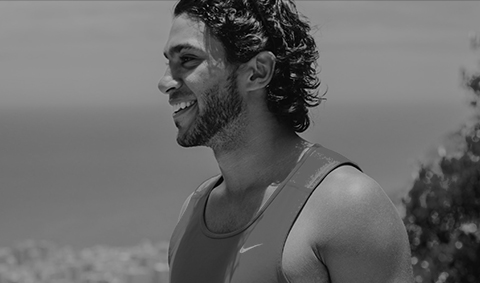Fighting Fatigue After Lunch
Have you ever felt like taking a nap after eating lunch? If so, you’re not alone. In fact, scientists have found that animals of all kinds; such as insects, snakes, and worms, often experience a dip in energy after their meals. There could be a variety of different reasons why you feel tired after eating. One reason could simply be because eating causes your blood sugar to rise, which will then lead to a blood sugar crash, followed by a dip in energy. Another reason could be because after you eat, blood flow to your small intestine increases significantly, which leads to a corresponding drop in blood supply to your brain…which leaves many of us feeling tired.
While feeling tired after a meal is normal, (as your body requires internal energy to digest the food you just ate); as a busy college student, I often find it frustrating when my energy dips after lunch, because oftentimes it is right after lunchtime when I need to be the most alert… and not feeling like I want to take a nap. So, I decided to investigate a couple possible ways to help combat the post-meal sleepiness.
One possible way to beat the post-lunch slump is by switching up the type of food that you consume. Carbohydrate heavy meals might increase sleepiness after you eat because they result in a high blood sugar spike and then a steep crash. It could help to include a balance of carbohydrates, healthy fats, and proteins in your lunch because the proteins and fats will soften the blood sugar spike from the carbohydrates; not to mention a meal containing all three of these macronutrients will help you stay full for longer. An example of a lunch that combines these three macronutrients is quinoa with toasted pine nuts and a side salad. The quinoa is a low-glycemic carbohydrate that is rich in protein and contains all nine amino acids. The pine nuts pack a polyunsaturated fat punch, and in your side salad you can include lots of vegetables that will fill you up with fiber and provide you with essential vitamins. If you wanted to add an extra boost of protein to this meal, you could top your salad with chicken, or if you’re vegetarian, you could add a hard boiled egg. If you’re vegan, you could add tofu. Whoever you are, you can tailor this lunch to meet your nutritional needs!
Another possible way to increase your energy after lunch is to eat a smaller meal for lunch, which helps keep your insulin levels stable, leading to more consistent energy.
Whilst these are possible methods to help improve your energy, our cortisol (wakefulness hormone) dips after lunchtime based on our natural circadian rhythm. If you have the time the best thing for you, is to do what our ancestors did and have an afternoon nap. However, if you don’t have the time, maybe try some breathing exercises and/or meditation. So, before you reach for caffeine or a sugary treat in order to find a quick energy fix, understand that it is normal to have a decrease in energy after lunch, and my advice would be to ride the wave.
Something I have learned over the years is that diet is not a “one size fits all” template. What I mean by this is that what works for one person, may not work for another. One person might feel their best when they intermittent fast, and another person might feel their best when they eat a bunch of small meals throughout the day. What I would recommend is to perhaps try a couple of these methods out, and then document how you feel in a journal. That way you can look back and see what things you ate/when you ate them and what kind of energy you had afterwards. By experimenting in this way, you can create a plan that best suits you, so that you have the energy to go out and achieve great things! Go get ’em!
Written by Caitlin Williams (intern at me&my wellness)
Graphic design by Palmira Ruiz
References
- “Effects of Intermittent Fasting on Specific Exercise Performance Outcomes: A Systematic Review Including Meta-Analysis”. US Natural Library of Medicine. Correia, et al, 2020 May 12. https://www.ncbi.nlm.nih.gov/pmc/articles/PMC7284994/
- “Why Do I Feel Tired After Eating?” Healthline. Butler, 2020 March 29. https://www.healthline.com/health/food-nutrition/why-do-i-feel-tired-after-eating
- “Is Quinoa Better for You Than Rice?” Medicine Net. Dhanorkar, 2020 December 16. https://www.medicinenet.com/is_quinoa_better_for_you_than_rice/article.htm


